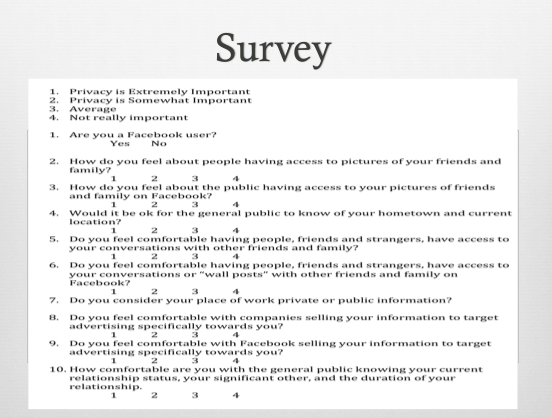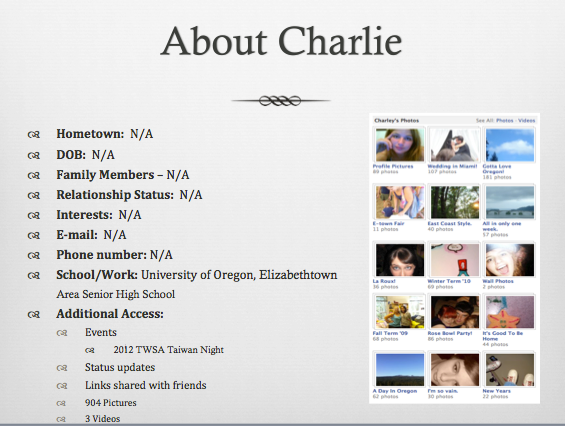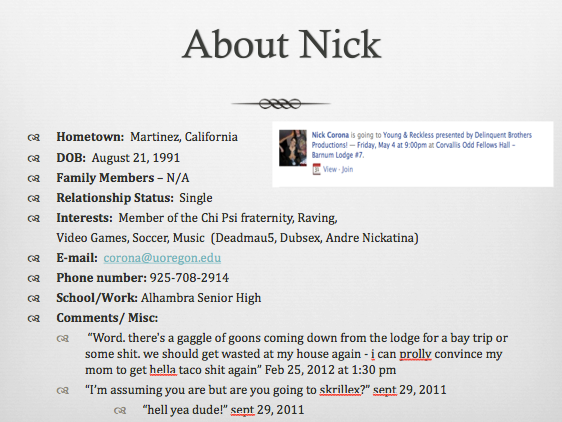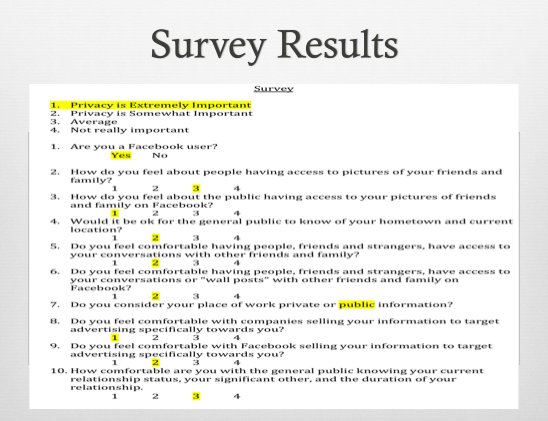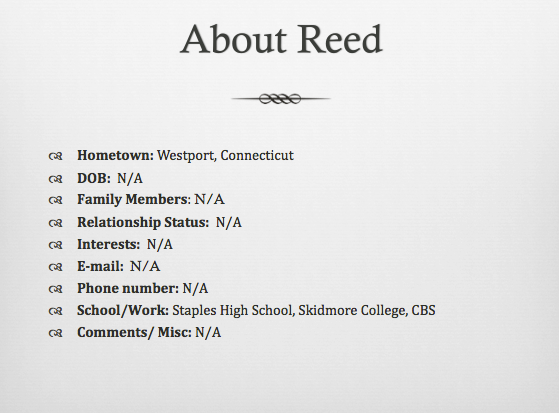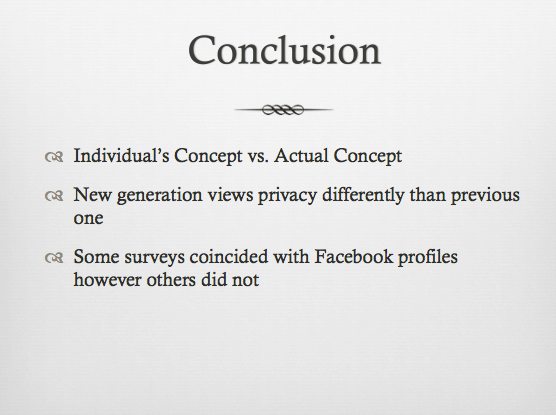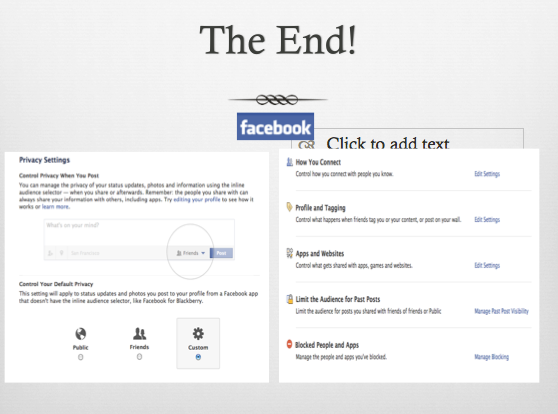
When it comes to the Facebook Privacy Policy, there seems to be a few misconceptions by users and the public alike. While the definition of privacy may be common knowledge, I will go ahead and define it according to Oxford American Dictionaries in order to set a standard for the definition, and subsequently our concept of privacy.
The state or condition of being free from being observed or disturbed by other people.
Therefore, it is understandable why (seemingly) our conceptualization of online privacy is one of a freedom of onlookers at our online activities. To clarify, my use of “our” refers to the society of Internet users at large. Clearly this is a gross generalization, but I believe the huge uproar and increasing level of debates about online privacy in the popular news would act as good enough support of this general use of “our”; at least for the purposes of this project. That being said, and armed with a definition and a (general) concept of privacy, I can honestly say that Facebook is not a source of online privacy.
There are many reasons as to why I feel confident in stating this about one of the most popular social networking site in the world (500 million monthly users). However, I feel like rather than delve into these reasons straight away there is a more pressing issue to address. And that is the issue of widespread intentional ignorance on the part of the users of said Facebook. There seems to be a common sentiment that Facebook is using shady business practices regarding our online privacy. While it is debatable whether or not Facebook’s business practices should be seen in a positive light, after just a little bit of research shady is certainly not the term to describe them. After all, Facebook is a business. Moreover, they are a free service. The common phrase, “There’s no such thing as a free lunch” comes to mind in relation to Facebook’s usage of advertising to fund their service.
Facebook’s missions statement reads, Facebook's mission is to give people the power to share and make the world more open and connected.
For a free service, they are really following through with their mission. With roughly 8% of the world’s population using their service, it seems only logical that they would need to find some way fund their efforts. I think that when it comes down to it, I would rather have advertisements geared towards me than pay a nominal fee. If however, I was nervous about what is happening between Facebook and advertising companies regarding my information, all I would have to do is look at the privacy policy. Quite simply, it’s that easy. This is where the problem of intentional ignorance comes into play. On the bottom of every single Facebook page there are 8 links. Two of which are the privacy policy and the terms (a statement of rights and agreements). Within those two links holds all the answers to all the questions that are never asked. All we hear are things such as, “Facebook owns all the content you post on facebook!” and “Facebook sells your information to advertisers!” While the latter is sort of true, the former is completely false. In fact, in the first sentence of the second paragraph of the terms they state. You own all of the content and information you post on Facebook.
As for the issue with user information being sold to advertisers, while it might be true in a way, Facebook lays it out for the user in an extensive and easy to read format in the privacy policy.
It is laughable that there is such an issue with Facebook and their business practices. Every question, or more accurately every accusation about Facebook could be cleared up. If only the information that they so beautifully, yes beautifully, laid out for us on the website was looked at. It seems that before everyone gets all heated about the awful things that Facebook is doing, lets not forget that they are doing us a favor. They tell us exactly what they are doing and how they are doing it. And if we are unhappy, they want to hear about it, even further, we can change it. That is in their privacy policy as well. All it takes is 7000 comments backing you and they’ll change it. Just because Facebook has a privacy policy does not mean that we should assume certain things about our own online privacy. It is our own negligence and misunderstanding that is getting us in trouble time and time again.
Our project focuses on the social phenomenon of Facebook and how it has changed our concept of privacy. We took students from our class and searched their Facebook profiles and recorded any and all public information that we could find on them (i.e. pictures, birthdate, hometown, locations, etc...). We then proceeded to give those students surveys that showed how that particular individual thought they viewed privacy. We compared survey results with Facebook profiles to show that our concept of privacy differs on Facebook for some reason. Why is it that we trust Facebook to know so much about us?



